Video: Ocean Ramsey Swims With A Whale Shark



Video: Ocean Ramsey Swims With A Whale Shark
See The Amazing Video Here!!
More Posts from Llamaslikesciencetoo and Others








Uncovering the Willow Ptarmigan Diorama
OKAY SO THIS IS COOL. The Reptile Hall is getting ready to undergo some renovations, and the first step in the process was to dismantle the square diorama case which previously housed Carl Akeley’s striped hyenas in the corner of the hall. But what NOBODY EXPECTED was to find a hidden diorama that had been blocked from view for ??? years.
Not only that, this is a really, really cool diorama because it’s actually two dioramas in one. The lighting mechanism isn’t functional right now, but when you approach you notice that it’s dark. The idea is that there’d be two lighting sources, two scenes (with two animals) that mirror one another, and a two way mirror.
The photos I snapped depict a willow ptarmigan (Lagopus lagopus) in a summer scene, sporting its summer plumage. In the winter, the bird’s plumage turns white. Here, the summer diorama is actually mounted to the ceiling of the diorama case, so when you shine a light through the front of the glass, that’s what is reflected back from the two way mirror. That means, behind the mirror is the second diorama: the winter scene, with a reversed taxidermied ptarmigan in a mirrored, winter landscape. Visitors could then approach the diorama and experience two different camouflage phases of the same animal, seamlessly fading from one to the other.
I hope we can fix up the lights again soon because this is AWESOME
Ptarmigan Bird Exhibit, Seasonal Plumage, Hall 20 diorama © The Field Museum, Z86694 and © The Field Museum, Z86693.
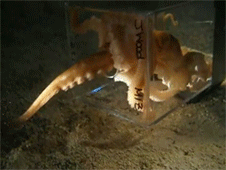
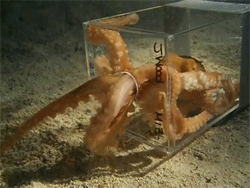




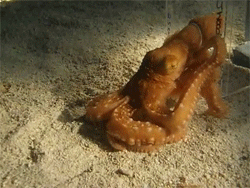
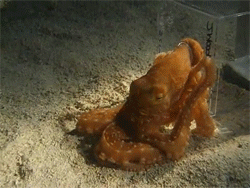

Bacteria use their own pumps to collect magnesium
Researchers at UiO and NCMM have discovered that the system used by bacteria to transport magnesium is so sensitive that it can detect a pinch of magnesium salt in a swimming pool.
Researchers at NCMM, the Centre for Molecular Medicine Norway at UiO and Oslo University Hospital have shown exactly how sensitive the bacteria’s transport system is.
Researcher Jens Preben Morth tells us ‘We have identified a nano-sized magnesium pump.’
The researchers manipulated an E. coli bacterium so that it overproduced using its own magnesium pump. 'The pump was isolated in the bacterium’s cell membrane.’ There are different methods of achieving this type of isolation. We could either divide up the proteins according to size, or we could examine the positive or negative electric charges of the proteins on the surface of the pump. 'As soon as the pump was isolated, we were able to work with the pure protein without disruption from other proteins,’ Morth explains. With the aid of enzyme kinetics, a special method of analysing chemical reactions, the researchers were able to obtain a calculation of the sensitivity to magnesium.
Saranya Subramani, Harmonie Perdreau-Dahl, Jens Preben Morth. The magnesium transporter A is activated by cardiolipin and is highly sensitive to free magnesium in vitro. eLife, 2016; 5 DOI: 10.7554/eLife.11407
The bacteria are shown in green. The multi-coloured area shows how the pump rests on the bacterial membrane (pink). The ‘machine’ itself inside the membrane is shown in orange. The grey dots are magnesium atoms. Credit: Jens Preben Morth, UiO

the only good news to come out of 2016
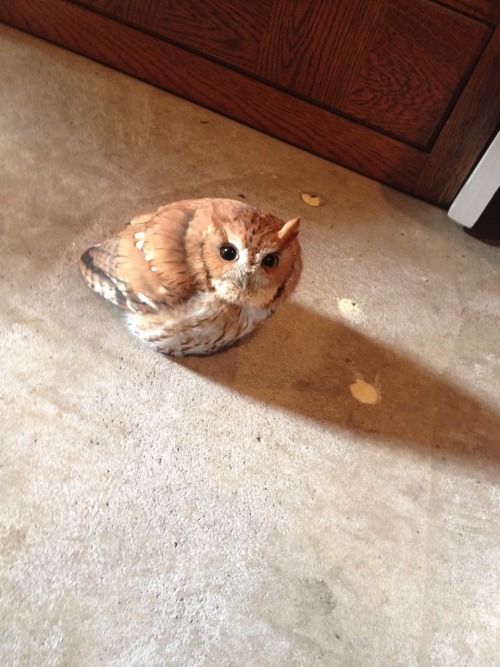

It’s a cute little thing though.

A starfish walking back to the water.
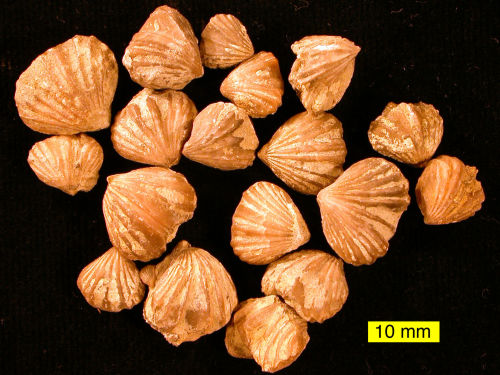
The Ocean Turnover
These are brachiopods, a type of filter-feeding organism that first evolved in the Cambrian era oceans. Although they look a lot like modern-day bivalves (clams), they are a very different organism, found in a totally different phylum. They can readily be distinguished by their shell shapes; brachiopods have sort of a “kink” in their shells whereas bivalves have more rounded shapes. Clams are molluscs, while brachiopods come from the phylum brachiopoda. These two types of filter-feeding organisms have an interesting interplay in the geologic record; if you pick up a limestone from the Paleozoic it is likely to be dominated by brachiopods, while Mesozoic and Cenozoic bivalve shells dominate limestones.
Keep reading

The dancers of the sea | Peter Chadwick

Guys, this is not a drill. Antarctic scientists need you to study photos of penguins to help them figure out how climate change is affecting these stumpy little flightless birds.
Scientists from the UK have installed a series of 75 cameras near penguin territories in Antarctica and its surrounding islands to figure out what’s happening with local populations. But with each of those cameras taking hourly photos, they simply can’t get through all the adorable images without your help.
“We can’t do this work on our own,” lead researcher Tom Hart from the University of Oxford told the BBC, “and every penguin that people click on and count on the website - that’s all information that tells us what’s happening at each nest, and what’s happening over time.”
The citizen science project is pretty simple - known as PenguinWatch 2.0, all you need to do is log on, look at photos, and identify adult penguins, chicks, and eggs in each image. Each photo requires just a few clicks to identify, and you can chat about your results in the website’s ‘Discuss’ page with other volunteers.
Continue Reading.
-
 yulifoxamala-blog liked this · 6 years ago
yulifoxamala-blog liked this · 6 years ago -
 nikte98h08 liked this · 7 years ago
nikte98h08 liked this · 7 years ago -
 vundabar-mort liked this · 7 years ago
vundabar-mort liked this · 7 years ago -
 getshorked reblogged this · 8 years ago
getshorked reblogged this · 8 years ago -
 getshorked liked this · 8 years ago
getshorked liked this · 8 years ago -
 kik32k reblogged this · 8 years ago
kik32k reblogged this · 8 years ago -
 superfinebeam reblogged this · 8 years ago
superfinebeam reblogged this · 8 years ago -
 superfinebeam liked this · 8 years ago
superfinebeam liked this · 8 years ago -
 jabberjaww reblogged this · 8 years ago
jabberjaww reblogged this · 8 years ago -
 lostlittleknight liked this · 8 years ago
lostlittleknight liked this · 8 years ago -
 bloody-hands-pure-hearts1329 liked this · 8 years ago
bloody-hands-pure-hearts1329 liked this · 8 years ago -
 maskedjoker liked this · 8 years ago
maskedjoker liked this · 8 years ago -
 gaysharks reblogged this · 8 years ago
gaysharks reblogged this · 8 years ago -
 nioice reblogged this · 8 years ago
nioice reblogged this · 8 years ago -
 jibber-jabber-balderdash reblogged this · 8 years ago
jibber-jabber-balderdash reblogged this · 8 years ago -
 dragonjones liked this · 8 years ago
dragonjones liked this · 8 years ago -
 seaside-sushi liked this · 8 years ago
seaside-sushi liked this · 8 years ago -
 plexxiglas reblogged this · 8 years ago
plexxiglas reblogged this · 8 years ago -
 blogscuba10 liked this · 8 years ago
blogscuba10 liked this · 8 years ago -
 frilled-shark reblogged this · 8 years ago
frilled-shark reblogged this · 8 years ago -
 muminthesun-blog reblogged this · 8 years ago
muminthesun-blog reblogged this · 8 years ago -
 aleksa-b98 liked this · 8 years ago
aleksa-b98 liked this · 8 years ago -
 gradualmutation reblogged this · 8 years ago
gradualmutation reblogged this · 8 years ago -
 svnbvm-an reblogged this · 8 years ago
svnbvm-an reblogged this · 8 years ago -
 ellecroc reblogged this · 8 years ago
ellecroc reblogged this · 8 years ago -
 jackieissadtoday liked this · 8 years ago
jackieissadtoday liked this · 8 years ago -
 scyther621-blog reblogged this · 8 years ago
scyther621-blog reblogged this · 8 years ago -
 skysegeljack liked this · 8 years ago
skysegeljack liked this · 8 years ago -
 d0wnh0me-c0untry reblogged this · 8 years ago
d0wnh0me-c0untry reblogged this · 8 years ago -
 oneradmonster-archive reblogged this · 8 years ago
oneradmonster-archive reblogged this · 8 years ago -
 plexxiglas liked this · 8 years ago
plexxiglas liked this · 8 years ago -
 love5150time liked this · 8 years ago
love5150time liked this · 8 years ago -
 dcsx1 reblogged this · 8 years ago
dcsx1 reblogged this · 8 years ago -
 coffe4167 liked this · 8 years ago
coffe4167 liked this · 8 years ago -
 do-over liked this · 8 years ago
do-over liked this · 8 years ago -
 sun-surfer234 liked this · 8 years ago
sun-surfer234 liked this · 8 years ago
Mainly interested in ecology, but also the entirety of science.
179 posts